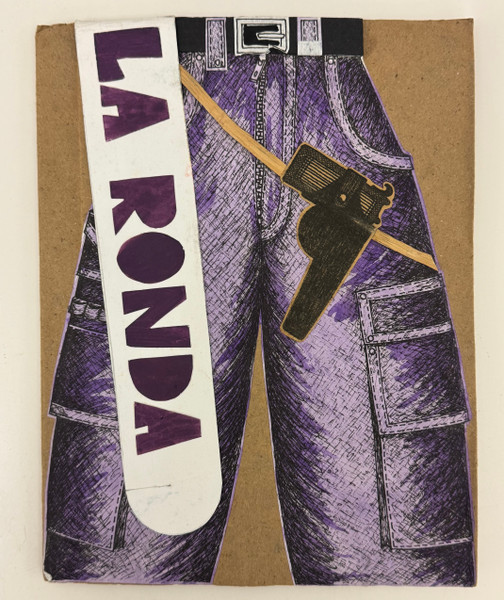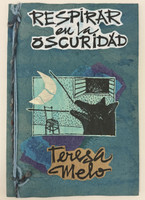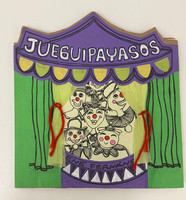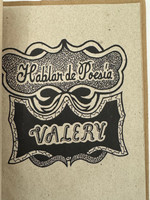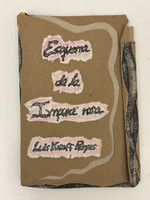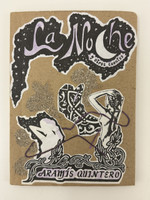- Travel
-
Exhibits
- José Fuster
- La Portada Cubana
- Immortal Cuba: Artists Take on Their Heroes
- Seattle Poster Exhibit
- Sandra Dooley & Alejandrina Cué
- The Art of Wayacón
- Cuban Folk Art
- Cuba In Black And White
- 25 Years of Cuban Art Space
- Summer Folk Art Expo
- ¡SPRING AWAKENING FROM CUBA!
- Celebrating The Art Of Cuban Women
- Celebrating Paper, Affordable Art from Cuba
- Art of the Revolution
- Outsider Art
- Lost and Found
- En la lucha: Celebrating Cuban Women and Their Art
- Cuban Art Stash
- 100 Fires: 5 Cienfuegos Artists' Work on Paper
- Waya + Monte! Magic Realism in Cienfuegos
- Viva Cuba Viva! Poster Show
- Cultivando Sueños
- Black Lives Matter in Cuba Jan 9-March 27
- Leandro Soto: Crónicas visuales
- Cuban Canvas
-
Archive
- Global Reflection 2018: Spirit and Community
- Exhibit in the cloud: Contemporary Works on Paper
- MADE IN CUBA! MINNEAPOLIS EXHIBIT
- Cuban Posters and Photography from CCS collection
- AUTUMN SALE! Sept/Oct 2017
- SPRING ARTS AND CRAFT SALE
- Vuelo Directo/Non Stop: Alberto & Alejandro Lescay
- The Many Faces of Fidel
- Somos
- Made in Cuba!
- The US empire in Cuban graphics
- Made in Cuba/Seattle exhibit
- Entre Nos
- Looking Back
- Cuban Art Space
- Membership/Donate
- About Us
- Cuba News
-
Rolando Estévez's provocative cover design for "La Ronda" features a bold visual metaphor that merges everyday clothing with implicit violence and sexuality. The composition depicts a pair of purple jeans rendered in meticulous crosshatch pen work, with detailed stitching, pockets, belt loops, and a prominent belt buckle. Tucked into the back pocket is a handgun drawn in black and brown, its barrel extending diagonally across the fabric. The title "LA RONDA" appears vertically along the left side in deep purple block letters on a white paper strip. The jeans are mounted on kraft cardboard backing, creating dimensional layering. Throughout the book's interior, Estévez varies this imagery—showing the jeans from behind on vibrant blue paper, depicting a female torso with purple corset-style lacing down the spine, and repeating the motif in different color combinations and perspectives.
Mae Roque (pseudonym of poet and narrator whose real identity is not revealed in the book) has published several works including "Yo, Safa...," "Poemas para entretener al loco," "La hija del tabernero," "Imagen y Semejanza," and "Aguas muertas." In her biographical statement, she explains that upon reading these verses, certainty emerges—the poet has achieved verse (achieved seeing). This highly cited gaze that every poetry maker must carry brings not a horizontal perspective but a circular one that turns around itself, representing her alterities unified in one book that circles the self to decenter it, possess it, see it, and see herself from afar in all the women who have been and who will be.
Published by Ediciones Vigía as part of their "Colección del San Juan" series, this edition consists of 200 hand-manufactured and hand-illuminated copies using recycled textiles and industrial papers of diverse colors, textures, and weights. The production team—Estela Ación, Ibis Arias, Iosmey Barbier, Ana María Coto, Álida Fernández, José R. Guevara, Leticia Hernández, Lissette Martínez, Gladys Mederos, Agustina Ponce, Maricel Ruiz, Laura Ruiz, and Abilia Tellería—worked collaboratively at the Taller Editorial in Matanzas. "La Ronda" (The Round/The Patrol) explores themes of female embodiment, surveillance, violence, and the circular nature of women's experience through Estévez's recurring visual motif of jeans that simultaneously suggests everyday wear, sexualization, and the threat of violence—transforming utilitarian clothing into a canvas for exploring power, vulnerability, and feminist consciousness.
-
-
Discover More at the Center for Cuban Studies

